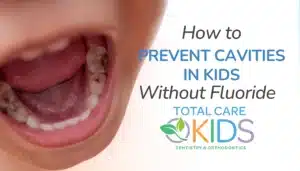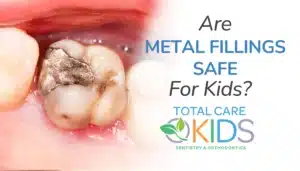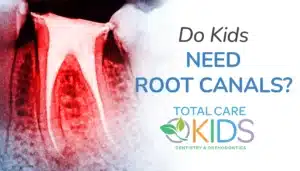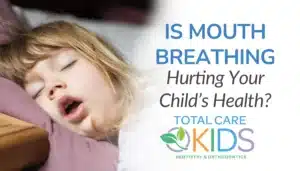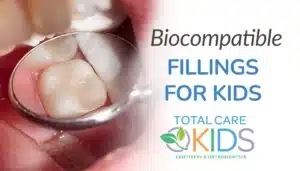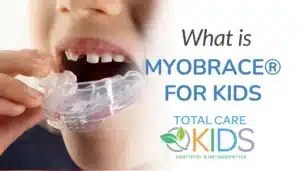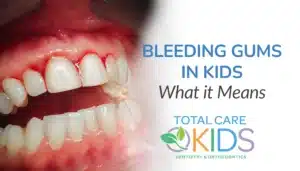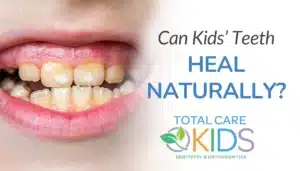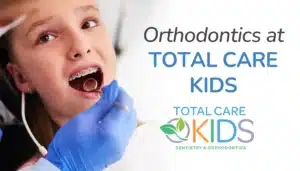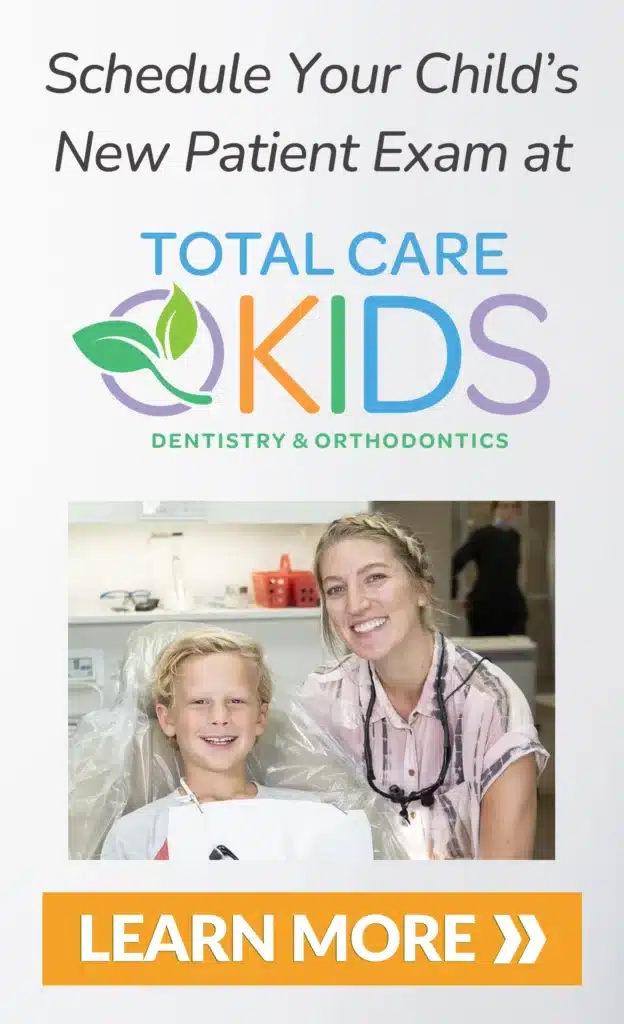chapter
06
Is Mouth Breathing Hurting Your Child’s Health?

A Holistic Look at Breathing, Sleep, and Facial Development
“If you notice your child breathing through their mouth, especially while sleeping, don’t ignore it—it may be more than just a stuffy nose.”
— Dr.Lyndi Jones, Holistic Pediatric Dentist
What Is Mouth Breathing in Children?
Mouth breathing in children may seem harmless—something they grow out of, or only do during allergy season. But persistent mouth breathing can affect more than just your child’s nose. It impacts oral health, facial development, sleep quality, and even behavior.
Holistic pediatric dentists see the mouth as part of a larger system. And when breathing isn’t happening properly through the nasal passages, the entire body compensates. Over time, this can lead to developmental changes in the face, jaw, teeth, and even the brain.
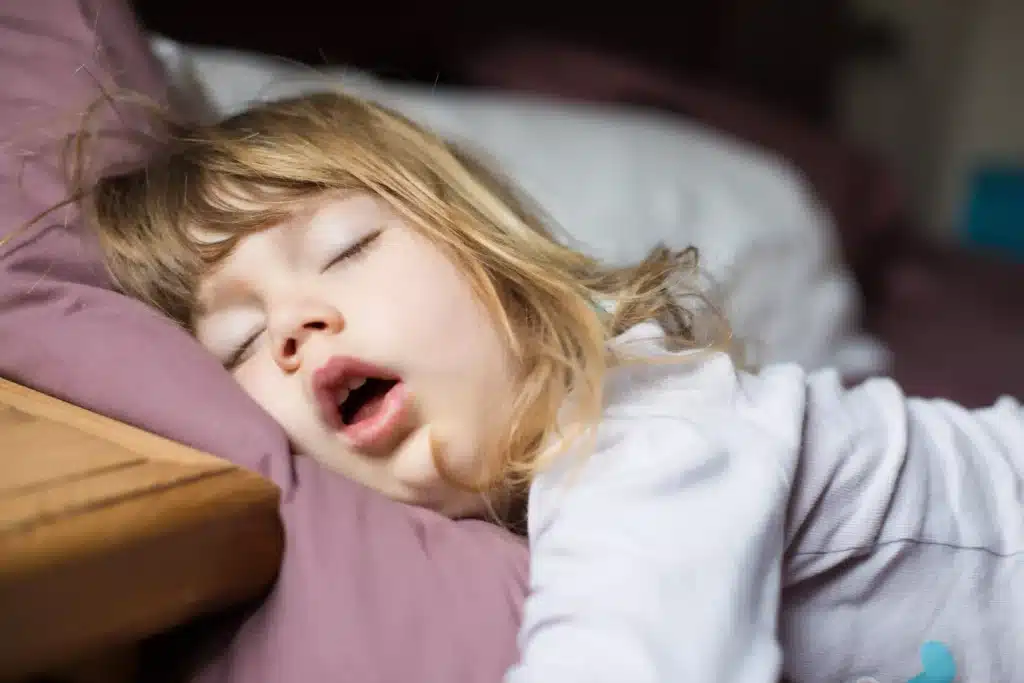
Why Nasal Breathing Matters
Our noses are designed for breathing. They filter allergens, humidify air, and produce nitric oxide, which helps oxygen circulate efficiently through the blood vessels. When children breathe through their mouths instead of their noses, the consequences can be significant:
The Benefits of Proper Nasal Breathing:
- Supports proper facial growth
- Aids in jaw development and tongue posture
- Reduces risk of tooth decay, gum disease, and dry mouth
- Encourages deeper, more restful sleep to improve focus and attention
- Helps maintain a healthy immune system

Signs Your Child May Be Mouth Breathing
You might notice one or more of these signs in a child with mouth breathing issues:
- Mouth open while sleeping or watching TV
- Snoring or noisy breathing during sleep
- Daytime fatigue or irritability
- Crooked teeth or crowded jaws
- Difficulty concentrating in school
- Dry lips or dry mouth
- Long, narrow face or receding chin
- Dark circles under the eyes (“allergic shiners”)
Even occasional mouth breathing can be a red flag, especially during critical growth stages. The sooner it’s addressed, the better.
What Causes Mouth Breathing in Kids?
There’s always an underlying cause to mouth breathing. In holistic pediatric dentistry, we look for root causes, not just symptoms.
Common Causes Include:
- Enlarged tonsils or adenoids
- Tongue tie or restricted tongue mobility
- Deviated septum
- Allergies or chronic nasal congestion
- Narrow palate or underdeveloped upper jaw
- Tongue posture problems or low tongue tone
These conditions affect how air flows through the nasal cavity and upper airway—and they’re treatable with the right holistic care plan.
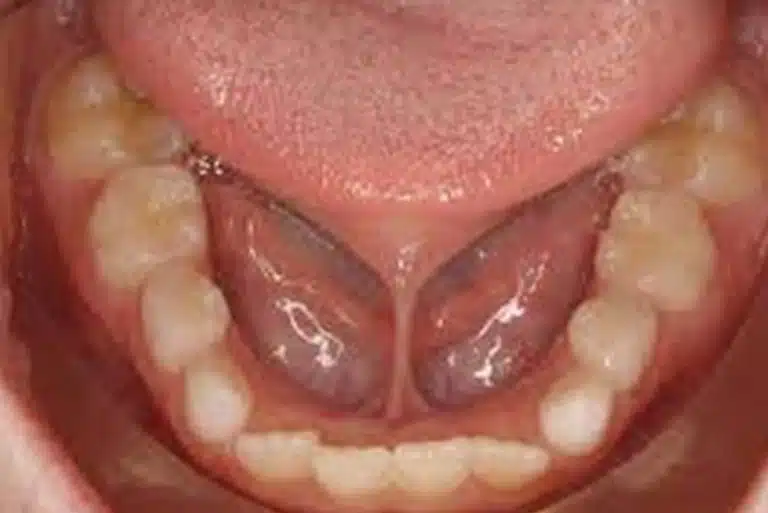
The Mouth Breathing Face: What It Looks Like Over Time
Chronic mouth breathing can lead to what’s called the “long face syndrome” or mouth breathing face—a narrow facial structure, flattened cheekbones, and poorly developed jaws. It’s not just about appearance. These changes can disrupt:
- Tooth alignment and bite function
- Speech development
- Proper breathing patterns
- Sleep quality
Mouth breathing can even increase the risk of obstructive sleep apnea, speech delays, and ongoing behavioral issues.
Holistic Treatment Options for Mouth Breathing
Fortunately, there are safe, natural ways to help your child breathe better—and grow healthier.
Holistic Approaches May Include:
- Myofunctional therapy (to strengthen tongue and facial muscles)
- Tongue tie release (if restrictions are present)
- Airway-friendly orthodontics for jaw expansion
- Allergy support and nutrition guidance
- Breathing retraining to encourage nose breathing
- Referral to ENT or sleep specialist for severe cases
As holistic providers, we collaborate with a team that may include ENTs, bodyworkers, myofunctional therapists, and pediatricians to build a comprehensive care plan.
Why Early Detection Matters
The earlier you intervene, the easier it is to correct. Left untreated, chronic mouth breathing may require orthodontic treatment, speech therapy, or even surgical interventions in the future.
If your child is showing signs of mouth breathing while sleeping, don’t wait. Holistic care focuses on the whole child, addressing not just their teeth, but their breathing, sleep, growth, and overall well-being.
You Are Not Alone
Many parents come to us after years of frustration, unsure why their child struggles with sleep, behavior, or crowded teeth.
“I thought my son’s snoring was just cute. I had no idea it was affecting his development.”
— A parent we worked with in our airway clinic
If this sounds familiar, we’re here to help. Our holistic team is trained in airway development and sleep in children, and we’ll walk you through every step with clarity and compassion.



